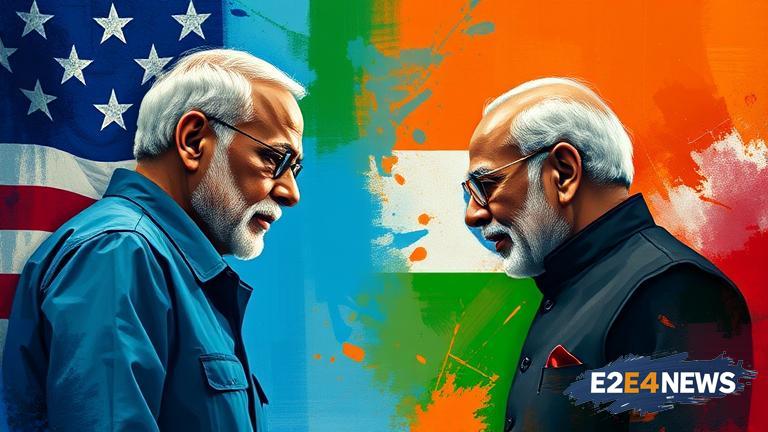The United States has imposed a 50% tariff on Indian exporters, affecting various industries such as textiles, chemicals, and pharmaceuticals. This move is expected to have a significant impact on India’s export-oriented economy. The tariff hike is a result of the ongoing trade tensions between the two nations, with the US seeking to reduce its trade deficit with India. Indian exporters are facing significant challenges in the US market, with many struggling to maintain their competitiveness. The Indian government has expressed concerns over the tariff hike, stating that it will harm the country’s export sector. The US has been increasing pressure on India to open up its markets and reduce trade barriers. India has been resisting these demands, citing concerns over the impact on its domestic industries. The trade tensions between the two nations have been escalating over the past year, with both sides imposing tariffs on each other’s goods. The Indian government has imposed tariffs on US goods such as almonds, apples, and walnuts, while the US has imposed tariffs on Indian goods such as steel and aluminum. The 50% tariff imposed on Indian exporters is one of the highest tariffs imposed by the US on any country. The move is expected to affect India’s export growth, which has been a key driver of the country’s economic growth. Indian exporters are exploring alternative markets, such as the European Union and Southeast Asia, to mitigate the impact of the tariff hike. However, these markets may not be able to absorb the full impact of the tariff hike, and Indian exporters may still face significant challenges. The Indian government is expected to take retaliatory measures against the US, which could further escalate the trade tensions. The trade tensions between the two nations are also affecting the bilateral relationship, with both sides engaging in a war of words. The US has been critical of India’s trade policies, stating that they are unfair and discriminatory. India has responded by stating that its trade policies are designed to protect its domestic industries and promote economic growth. The trade tensions between the two nations are also affecting the global economy, with many countries watching the developments closely. The World Trade Organization (WTO) has expressed concerns over the trade tensions, stating that they could have a negative impact on global trade. The Indian government is expected to engage in talks with the US to resolve the trade tensions and find a mutually beneficial solution. However, the talks are expected to be challenging, with both sides having different perspectives on trade policies. The trade tensions between the two nations are a major concern for Indian exporters, who are facing significant challenges in the US market. The Indian government needs to take proactive measures to support its exporters and mitigate the impact of the tariff hike. This could include providing financial support, promoting alternative markets, and engaging in talks with the US to resolve the trade tensions.
